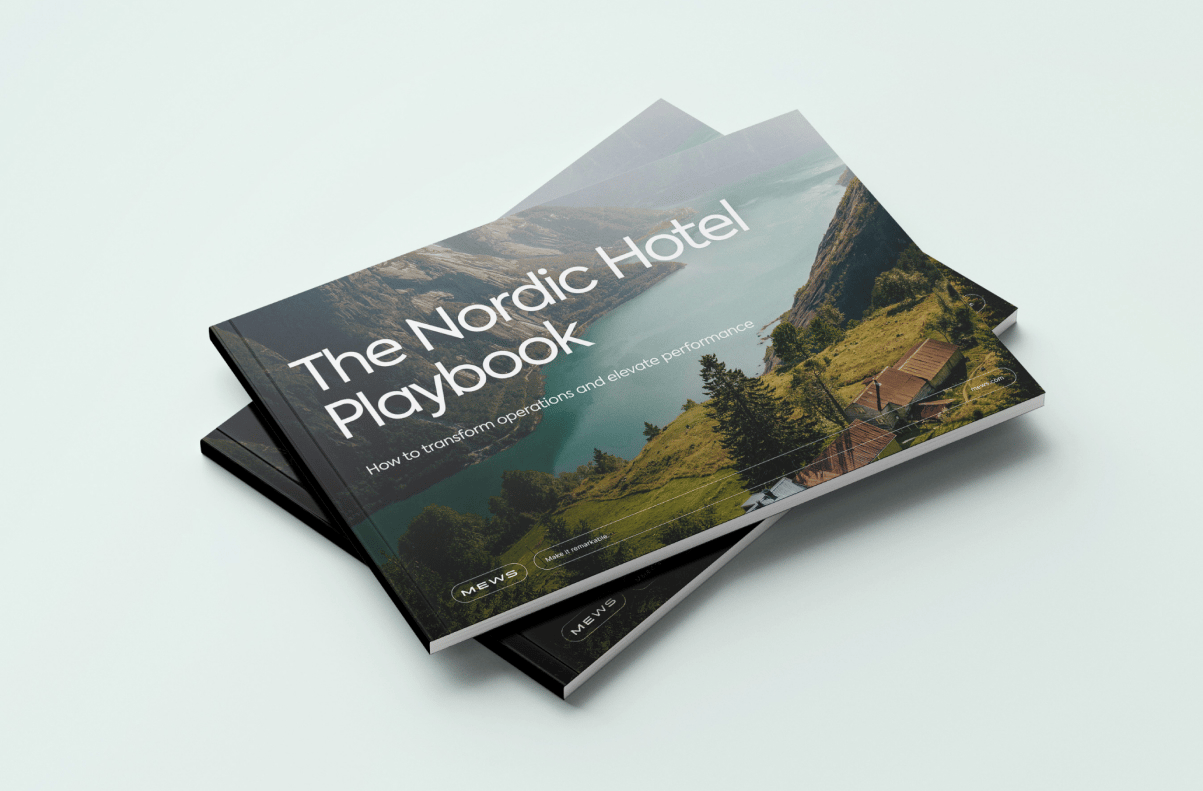Table of contents
Fraudulent charges and chargebacks are part of the ugly side of hospitality. Not only do they eat away at profits, but handling the aftermath can be a drain on your valuable time. Not cool.
We’ve already written about how hotel chargebacks work, but how can you prevent them in the first place? That’s what I’ll cover in the rest of this article, with some universal tips and some advice specific to Mews hotels.
Common fraud scenarios
Before we take a look at some of the steps you can take to prevent fraudulent chargebacks, it makes sense to examine the most common scenarios that your hotel will be faced with. There are any number of ways that a fraudster could get access to someone else’s card details:
- Phishing (phone calls, emails, fake websites)
- Malware and spyware
- Skimming (mostly at ATMs)
- Data breaches
- Public Wi-Fi networks
- Searching through the trash (old fashioned, but it still happens a lot)
Fraud scenario 1
One of the most common ways people try to trick hotels is to book a stay with someone else’s ID and credit card. This could have been taken by any of the means above or purchased for cheap on the dark web – credit card details can go for as little as 70 cents.
Once they have the card and ID, they’ll make a reservation. For them, it’s important to use your services within the next few days in case the real cardholder notices suspicious activity and notifies their bank. As it usually takes a few days for the bank to start their investigation, fraudsters prefer short stays and pay on the day of arrival or just before their stay.
Although they can use various sources to make a reservation, they’ll most commonly use direct emails or phone calls. As far as your team knows, everything seems normal. But then a few weeks or months down the road, a chargeback claim comes along with the reason, ‘fraud’.
Fraud scenario 2
Another common example of fraud is the reservation cancelation scam. You receive a booking via email paid for using a credit card. The guest cancels the booking shortly afterward and asks you to refund some or all of the payment by returning the funds via bank transfer or other method.
It’s likely that a stolen credit card was used to make the booking, and the scammer is hoping you'll trust whatever story they come up with and do as they say – after all, there’s a lot of pressure for your team to provide great customer service.
When this happens, always refund the credit card transaction to the card that was used initially. Otherwise, you can lose not only the money billed to the credit card (via a chargeback) but also the money you send to the scammer.
Although these are the most two common scenarios in the hospitality industry, there are plenty more. Fraudsters are constantly finding new, creative ways to attack businesses – but with these tips below, you’ll have a much better chance to defeat them.
How to prevent fraudulent charges and chargebacks
Fortunately, you are not powerless to prevent chargebacks, whether they emanate from fraud or because your customer is unhappy for some reason. Here are some simple steps you can take to reduce the number of chargebacks you’ll receive.
Use the clear payment descriptor
When a cardholder checks their bank statement, they should be able to immediately recognize the transaction so it’s obvious whether they made it or not. Don’t use your parent company name or internal shorthand. If your hotel is called Chalfont House, the payment descriptor should be ‘ChalfontHouse’, not something like ‘CHHoldings’. In Mews, this is an easy change.
Manually review payments
The vast majority of your bookings will be straightforward and legitimate. But being cautious can prevent chargebacks further down the line. A few things to look out for:
- Does the customer’s contact information seem legitimate?
- Does the customer’s email address match the name on their card?
- Did the customer try to make other payments that were declined?
- Did the customer make multiple payments, including declined payments?
- Did they use:
- several different cards to make the payments, or
- the same card but different addresses?
Verify your customer’s identity
Regardless of whether a payment seems suspicious, it’s good practice to ask your customers for proof of identity before check-in. If an advance payment seems suspicious, contact the customer directly to verify their details before confirming their reservation.
Refund suspicious payments immediately
As simple as it sounds. If you suspect a payment is fraudulent, refund it as soon as possible to avoid a chargeback later.
Set out your payment and refund policies
Sometimes a customer may argue about your rate policies, for something they were charged for, or how they were charged for it. In these cases, your best defence is to show your customer that they accepted the terms and conditions of the rate on your website and received a confirmation email with clearly stated the terms and conditions.
Practice good customer communication
Credit cards are usually kept on file and then charged retroactively for additional services or charges. Since the customer may have already left the hotel at this point, they won’t know the reason for the charge. Never just send a payment request or take money without context. A simple email outlining the reason should be enough.
Helpful solutions for chargeback prevention with Mews
Mews hoteliers are in a strong position when it comes to preventing chargebacks. Here are a couple of easy tips you can action.
Make 3DS authentication default in Mews
3DS is a very helpful tool for securing your business when accepting payments over email or by phone. Just enable 3DS, send a payment request and you have 100% protection from fraudulent chargebacks. Learn more about the benefits of modern payments.
Use Mews terminals
No chargebacks have been claimed on any transaction made through a Mews Terminal. Ever. Learn more about Mews Terminals.
Integrate with Autohost.ai
A connection with Autohost.ai helps to screen guests and reduce fraudulent chargebacks, especially for properties with no front desk. Autohost helps short-term rental operators and hotels use online check-in, with advanced guest screening to help reduce issues such as regulatory compliance and fraudulent chargebacks.

Author
Karina Rybalko
Risk Analyst at Mews
Hospitality hot takes straight to your inbox
Sign up to our monthly newsletter for industry insights, product news, partner updates and more.

The Nordic Hotel Playbook
Download now

.jpg?width=624&height=555&name=Thumbnail%20-%20600x395-50%20(11).jpg)
.webp)